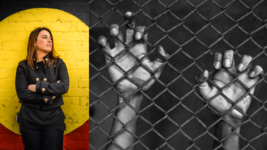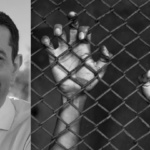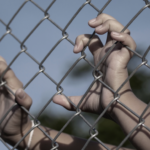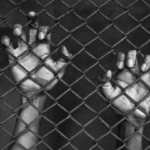Calls for Federal Intervention as States and Territories Crackdown on Youth Crime

The Crisafulli government came to power in Queensland in October 2024 with its key policy initiative being “adult crime, adult time”, which is a regime that sees kids as young as 10, who commit certain serious criminal offences facing “adult level” sentences, including life imprisonment, at a point in time when the state’s youth crime rates have halved over the 14 years prior.
This crackdown has offended the sensibilities of countless. But for those who are yet to raise an eyebrow, premier David Crisafulli has introduced further adult time amendments in an attempt to offend all. Arson, being armed or threatening violence may soon carry adult time, while if passed, the bill will result in a breach of the prohibition on cruel, inhumane or degrading treatment against kids.
“It is likely that Aboriginal and Torres Strait Islander children will be impacted more by these amendments, due to their overrepresentation in the criminal justice system,” Queensland youth justice minister Laura Gerber said in the 1 April 2025 introduced bill’s statement of compatibility.
“The bill could result in more Aboriginal and Torres Strait Islander children being imprisoned for longer periods of time.”
The acknowledgement of the targeted nature of these laws is not the norm as other states progress similar youth crime crackdowns, under circumstances where youth crime has been broadly trending downwards. But the fact that 60 percent of youths in child prisons nationally are First Nations, while they only account for 6 percent of the population at that age, clearly reveals this to be the case.
Similar youth crime crackdowns that ultimately target Blak children, because of the nature of the Australian criminal justice system, are being progressed in the Northern Territory and NSW, as well as Victoria, where a dramatic pivot from progressive bail reforms to those ensuring more children in gaol has led Independent Senator for Victoria Lidia Thorpe to call for federal intervention.
Dispelling gaoling myths
After initially passing 2023 bail reforms to protect against vulnerable people unnecessarily being remanded, in response to the death in custody of Veronica Nelson, the Allan Labor government in Victoria did a backflip and passed a series of “tough bail laws” last month, which will see more youths and adults remanded whilst awaiting their day in court.
In terms of how the Allan government was able to achieve this backflip in such a short period of time, Thorpe said that “media sensationalism has definitely fuelled public fear, but I see the real failure as a political failure”.
“Political leaders refuse to challenge the false narrative that harsher punishment equals safer communities,” said the Gunnai, Gunditjmara and Djab Wurrung senator. “They know the evidence: gaoling – especially children – is linked to increased future offending rather than a reduction. It’s also massively expensive and disproportionately impacts First Peoples, women and vulnerable groups.”
“Yet, rather than informing the public and building support for evidence-based and self-determined solutions, politicians have been taking the politically convenient route – demonising children, especially Blak children, to win votes,” she continued. “It’s cowardly and damaging.”
The Victorian Andrews government passed the progressive 2023 bail reforms that ended the remanding of repeat low-level offenders and ensured that an assessed risk of minor reoffending was not a reason for bail. However, Allan’s turnaround last month, has seen bail as a last resort for youths dropped and the “toughest bail test ever” rolled out for the worst offenders.
Thorpe considers the nation has to move past “the false idea that protecting children’s rights conflicts with public safety”. She warns that this isn’t going to happen while politicians don’t have the “guts to stop reinforcing the myth that cruelty and incarceration reduce crime”, and she posits that one major party has to take the lead on “strengthening communities rather than expanding prisons”.
“In parliaments across the country, only crossbenchers are pushing for evidence-based change,” Thorpe further pointed out. “It’s one of the reasons why we need to break the two-party system in this country. We need to push the major parties into minority governments with strong crossbench representation.”
A spontaneous nationwide crackdown
In terms of crackdowns across multiple jurisdictions, Thorpe told Sydney Criminal Lawyers that they’re “always racialised: targeting First Nations kids and other Black and Brown young people from migrant backgrounds”.
“These policies are clearly underpinned by an appeal to racist anxiety,” the senator explained. “The pattern is clear: fear-based politics, not evidence, is dictating policy and it’s dog whistle stuff. And it’s happening despite Australia’s worsening breaches of international human rights obligations.”
Thorpe further set out that the fast-approaching nationwide youth crime crackdown commenced in Palaszczuk’s Queensland in 2023, which was followed by the Northern Territory Country Liberal government coming to power last August on its tough on crime, especially youth crime, agenda, which only served to ensure that in Queensland adult crime, adult time was progressed.
Meanwhile, the NSW Minns government launched a youth crime bail crackdown in March last year, that has since led to an 80 percent rise in teens being remanded, while 88 percent of youths caught up in these new measures have been First Nations kids, along with their accounting for 90 percent of those incarcerated under the law reforms.
Victorian premier Jacinta Allan launched her state’s youth crime crackdown last August, which included pausing the raising of the age of criminal responsibility at 12, which her predecessor had raised from 10 in April 2023, even though the promise was to eventually take it to 14 years old.
“We’ve seen opposition parties increasingly using ‘tough on crime’ rhetoric to undermine incumbents, while right-wing media is fuelling public anxiety for profit,” the Victorian senator underscored. “And police unions, eager for more resourcing, power and influence over governments, have played a key role in driving these policies.”
Permission to fail children
Thorpe further explains that despite law-and-order usually being the domain of the states, the federal government does have the power to intervene, via the external affairs power in section 51 of the Constitution, which provides for the enforcement of “human rights standards across all states – just as it has done in other areas of law”.
“The government also has significant leverage through conditional funding, as we see in health, education, disability and many other policy areas that have historically been seen as the responsibility of the states,” the senator makes clear. “Yet, the government is choosing inaction and falsely claiming this is a state issue.”
This seemingly spontaneous crackdown on youth crime by various states and territories is coming at a time when there is no overall spike in youth crime rates, while it serves to primarily target Aboriginal and Torres Strait Islander children, when the treatment of First Peoples by settler colonial states is under a global microscope, in the face of the wanton slaughter in the Gaza Strip.
Thorpe adds that if the Australian government was serious about protecting children and upholding the nation’s human rights commitment, it would act. However, what is instead happening is ministers are hiding behind excuses and allowing these stark abuses to “continue unchecked”.
“I, with the support of the crossbench, have been pushing for the Albanese government, particularly the minister for Indigenous Australians and the attorney general to start taking some real action, but so far they have offered nothing,” the Gunditjmara, Gunnai and Djab Wurrung woman outlined.
“But I believe that if we can build a stronger progressive crossbench after this next election, and push Labor into minority government, we’ll be able to start forcing some action on these issues,” Thorpe said in ending.







